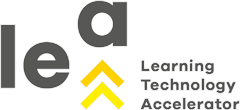Representatives from central Finland municipalities gathered at the Lapunmäki school centre in Konnevesi on the 16th of November 2018 to discuss the future of digital learning environments. The seminar featured presentations from both digital learning platform and LEA representatives. The event brought together teachers, researchers, digital learning platform representatives and LEA project member. The conversation proved to be quite lively and innovative, with many different perspectives, but still very similar needs for digital learning and education.
Kati Clements, the LEA co-ordinator, opened the event with a presentation of innovative procurement and the involvement of schools and municipalities in EU-funded projects. Through Kati Clement’s introduction, the conversation moved on to the digital trends of 2018. Robotics, teacher qualification, attitudes towards technology and artificial intelligence proved to be some of the key points when discussing the future trends of digitalisation. Many challenges of digital education and learning were also mentioned. Many schools have robots, but they are not used – why? Are teachers and students too conservative for robotics and programming? Do teachers have the required skills to use all the equipment? Are teachers afraid of failure and loss of control? Could the teacher’s role be a supportive one? Supporting the process of learning and letting the students show their skills. These were some of the questions raised in the conversation.
Jari Laru, a lecturer from the university of Oulu, gave a keynote presentation of the future of learning technology with the interesting title of “How will the new generation revolutionize education? Or will it?”. Jari Laru declared that technology in education is no longer questioned and that the Finnish school system should be rebooted. It was again noted that teachers do not know everything and that this is ok. It should be acknowledged that the younger generation is already ahead of the older one in the field of technology.
Teemu Laitinen, the CEO of Almerin, presented the company and Yiptree, a digital learning environment with artificial intelligence that was created for the purpose of the IMAILE project. Hannu Rainerma, a Peda.net trainer, talked about the Peda.net digital learning environment and digital pedagogy.
At the end of the seminar, the discussion moved onto the needs of digital education. Basically, teachers want something that saves their time in regards to the mechanical work of grading and preparation, which would free their time for the benefit of the students. Tools for learning and the skills for assessment are needed: apps that are easy to use and function without problems and training for these tools, if necessary. More co-operation between teachers, funds for acquisitions and the required resources. Teachers should be motivated (vs. old attitudes) to teach skills instead of facts. It was noted that teachers should adventure out of their comfort zones and be creative. Administration, from their part, should also encourage and support teachers to do so. The learning apps should combine learning, technology, and exercise, and support individual learning.
The growing impact of digitalisation could also be seen in organising this event. Nowadays, it is not enough to advertise an event only with posters, phone calls or e-mail invites. What really matters are the social media posts and adverts. These are the ones that people see and notice. The participants of the seminar were gathered through existing contacts, but via the use of social media channels, also new contacts were created. From the point of view of the event organiser, the seminar proved to be successful and the conversation very fruitful.
